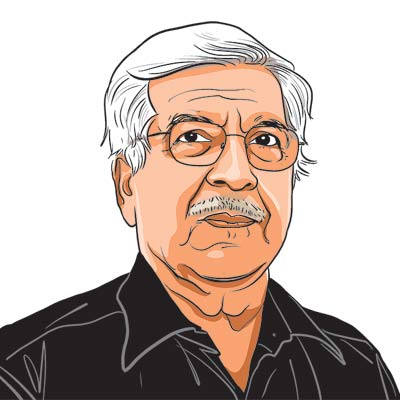Opinion Hope from Bangladesh: A secular subcontinent
The recent judgment by the Bangladesh Supreme Court last week in Dhaka as an operative secular democracy is terribly important and only a jaded elite tucked it away. The last of the Bismarckians thrive in the subcontinent and foreign policy treatments after the Fifties of the last century were not heard of. After dinner,Morgenthau and […]
The recent judgment by the Bangladesh Supreme Court last week in Dhaka as an operative secular democracy is terribly important and only a jaded elite tucked it away. The last of the Bismarckians thrive in the subcontinent and foreign policy treatments after the Fifties of the last century were not heard of.
After dinner,Morgenthau and the Dominoes so popular in justifying Johnsons Vietnam policy are the standard stuff.
When I was at JNU,some of the top international theorists visiting us were unheard of elsewhere.
That ideas and ideals matter in international relations is taboo. Its only the South Africans who talk of solidarity any more. For our country at the age of sixty three,it is fashionable to be bored at the idea of change based on values and to think of it as a civilisational faultline.
Bangladesh is a favourite for many reasons. To a professional economist,it has always had the strongest tradition in the subcontinent. In its heyday,the Pakistan Institute of Development Economics,while located in the Punjab,was led by stalwarts like Nurul Islam. They all went over to the Bangladesh Institute of Development Studies.There was Rehman Sobhan and Mosharraf Hossein.
Many doyens of India traced their lineage to Bangladesh. The great A K Dasgupta was originally a Professor at Dhaka and Sukhomoy Chakravarti was from Bangladesh. All of us know the legends of the escape of the Bangladeshi economists on the night of the long knives when the Sheikh was assassinated. Earlier,the great ruralists at the Commilla Academy were led by the one and only Akhtar Hamid Khan Saheb.
When I was 25 years old,my teacher Irving Kravis sent me from the University of Pennsylvania to a seminar on development that Gunnar Myrdal had organized in Sweden. Asked to lead a discussion on development,A H Khan Saheb who had flown in from Commilla and was chairing the meeting,gave me and my like,a sound verbal thrashing for coming from the land of Gandhi and not understanding our own country and its economy.
Rural self-help has old origins. Self-help finance is well known but I was never surprised when it was the only Asian country in which irrigation went up in the Nineties and there was a few years ago another unusual spurt in rice production.
In 1990 I was to go to Dhaka for a conference discussing structural adjustment organized by the UN,World Bank and the Bangladeshis. Seething within and very argumentative,it is at the surface a very placid country with big rivers and dense greenery. The Prabhat Pheris with Rabindra Sangeet start at dawn and of course the great poet Nazrul Islam is a national hero. Food is absolutely divine and I am told that nobody could ever make sandesh the way Allaudin made it in Dhaka. I have a feeling that if there is peace and growth,Bangladesh will intellectually and culturally move faster than our Bengal. I say this and duck.
But of course,peace is not that easy. When I was there the campus of Dhaka University was like a fortress with more soldiers than students. With us there is a bond. In the conference all the foreigners took dollar denominated allowances which the Bangladeshis didnt.
My happiest moment was when the venerable old registrar organizing the meeting took me on the last day to the kitchen,called the waiters and chefs,and told me to tip them with my daily allowance. Telling them to take it,”Jogen babu is one of us,” he said.
Bangladesh has the strength and the confidence to accept the other and to go its own way. That meeting was important,for the brilliant Pakistani economist Mohsin Khan,then chief economist of the IMF,was to present his classic assessment of the structural adjustment programme designed originally by our Shankar Acharya and implemented in over a hundred countries. The meeting was contentious and Rehman Sohban and some of us led the counterfactual.
As Lal Jayawardene wrote in the Preface of my book on development planning and policy,it was at the Dhaka meeting that I was commissioned by the United Nations University to expand my paper on a counterview. The resultant book was reasonably well read with reprints and a paperback,and to the Bangladeshis goes the credit of preparing it for the market test.
Once upon a time,Nepal was a Hindu kingdom.
It no longer is. Now Bangladesh and,of course,India. It is not unlikely that the real conflicts lie ahead of us. But while economic policies and political regimes change,sometimes radically,social progress seldom permits large permanent reversals. Is the subcontinent destined in the future to be the frontier which stood against the clash of civilizations?


